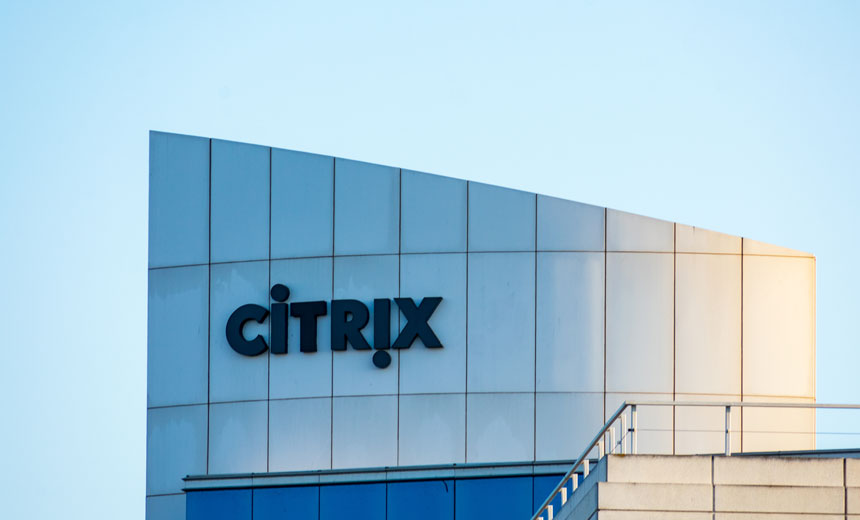Governance & Risk Management
,
Remote Workforce
,
Zero Trust
deviceTrust, Strong Network Acquisitions Improve Zero Trust, Developer Protections

Citrix purchased two European startups to help organizations deploy robust zero-trust policies and protect cloud development environments while simplifying security management for hybrid workforces.
See Also: Real-World Strategies for Securing Remote Workforces and Data
Citrix said its acquisition of deviceTrust’s contextual access technology and Strong Network’s secure cloud development tools boosts the Fort Lauderdale, Fla.-based business unit’s ability to safeguard critical applications and data. German software startup deviceTrust focuses on VDI and desktop-as-a-service environments, while Swiss company Strong Network specializes in cloud development settings.
“As businesses continue to evolve to support hybrid work, the demand for cyber resilience has only intensified,” Citrix Executive Vice President and General Manager Sridhar Mullapudi said in a statement. “By integrating their secure access technologies into the Citrix platform, we’re providing greater value for our customers and helping them meet the diverse needs of their users.”
Strong Network, founded in 2020, employs 26 people and closed a $5.75 million seed round in March 2022 led by OpenOcean and Wingman Ventures. deviceTrust, founded in 2016, employs 10 people and hasn’t disclosed how much funding it received. Strong Network CEO Laurent Balmelli is now Citrix’s vice president of product management, while deviceTrust CEO Sascha Goeckel also joined Citrix (see: Comcast Ties Breach Affecting 36M Customers to Citrix Bleed).
How Citrix Customers Will Benefit from deviceTrust
deviceTrust and Strong Network bring granular, real-time security controls for all access points, which Citrix said is vital in modern IT environments where hybrid work and diverse device usage are prevalent. Mallapudi said hybrid work complicates IT security in environments that combine on-premises and cloud resources, forcing IT teams to manage security for both company devices and workers’ personal devices.
deviceTrust helps organizations continuously monitor endpoint devices, assess their security posture and respond dynamically to changes such as device compliance, user location or network conditions. Access can be restricted or revoked in real time, and deviceTrust’s tool ensures access policies remain valid throughout a session, mitigating risks associated with session hijacking or environmental changes.
“This capability allows organizations to monitor and respond to changes in device posture and user location, strengthening data security, managing application access and reducing endpoint risk,” Citrix said. “By continuously assessing device attestation, the Citrix platform enables IT leaders to grant or revoke access based on real-time security conditions, offering organizations greater control.”
Real-time policy enforcement addresses challenges like rogue devices accessing sensitive resources or a device losing compliance with security protocols, Goeckel wrote on LinkedIn. This capability not only boosts security but also ensures that only compliant devices can access sensitive corporate systems, according to Goeckel.
“The acquisition by Citrix makes us very proud and enables us to expand the leading contextual access technology further together and make it accessible to even more customers,” Goeckel wrote on LinkedIn.
What Strong Network Brings to the Table
Strong Network, meanwhile, enables developers to work in secure, pre-configured environments that protect sensitive data and maintain compliance while reducing infrastructure costs. Developers can perform their coding tasks within highly secure, browser-based environments, eliminating the need for sensitive data to reside on local devices and reducing risks such as data exfiltration and unauthorized access.
The company’s technology addresses both security and productivity concerns for developers working in hybrid or remote setups, and Balmelli said providing isolated coding environments minimizes risks such as data breaches and ensures compliance with industry standards. This helps organizations avoid risks associated with traditional developer environments including unauthorized data access and malware, he said.
“Strong Network protects against data breaches with features like data loss prevention and patented data infiltration detection, which guard against phishing, malware and credential theft,” Citrix said. “Designed for BYOD setups, the Strong Network platform’s secure cloud development environments also ensure compliance with security standards such as NIST and ISO.”
Mallapudi said organizations managing hybrid IT environments often struggle with fragmented security policies across different systems, increasing complexity and the risk of data loss. Citrix simplifies zero-trust security management and reduces administrative burden by centralizing policy definition and enforcement actions across hybrid applications, which he said ensures a unified approach to security.
“I’m really excited about these acquisitions and the added flexibility and security they bring to the Citrix platform,” Mallapudi wrote on LinkedIn. “It marks yet another way we’re empowering companies to manage secure access for a diverse set of devices, user needs, and deployments.”
